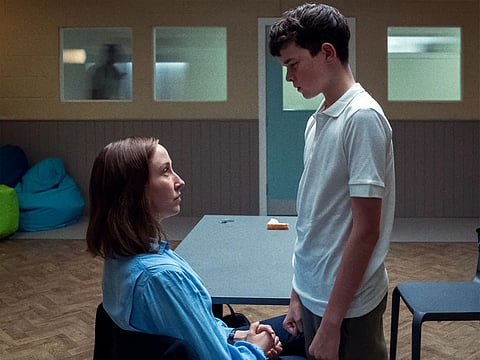Why Netflix's Adolescence features an episode that you can’t miss, out in UAE now
The raw emotion and breathtaking performances on OTT left me utterly glued to the screen

I watch a lot of TV.
From masterpieces like Breaking Bad, Severance, The Office (UK), Only Fools and Horses, and Dark, my watchlist has been packed with shows that left a lasting impression. But let’s face it - amid the never-ending stream of content on Netflix, Disney+, and Prime, I’ve also stumbled upon my fair share of duds.
So, when Netflix’s latest hype machine, Adolescence, popped up on my radar, I approached it with some scepticism. A British crime drama revolving around a 13-year-old accused of murdering a classmate?
Sure, it sounded intriguing and right up my alley, but haven’t we seen this kind of premise rehashed a dozen times before? What could this series possibly bring to the table that others hadn’t already explored?
Still, the lure of a short binge was too strong to resist. With just four episodes, it promised an easy Saturday afternoon of sofa lounging and snacks. And let me tell you - I’m so glad I gave it a chance.
I won’t dive into every twist and turn of the series, but here’s what you need to know: each episode is masterfully filmed in a continuous one-shot style, creating an immersive experience like no other.
The cast boasts legendary British actor Stephen Graham, The Crown’s Erin Doherty, and the astonishing Owen Cooper - making his debut in what I still can’t believe is his first-ever casting.
While all four episodes are exceptional, shifting focus to the accused’s perspective rather than the victim’s, it’s the third episode that truly captivated me. The raw emotion and breathtaking performances left me utterly glued to the screen, marvelling at the talent on display.
It delivers a gripping and emotionally charged narrative, centring on the tense dynamic between 13-year-old accused murderer Jamie Miller (Cooper) and child psychiatrist Briony (Doherty).
Assigned to conduct a pivotal psychological assessment for the court, Briony’s task becomes the foundation of a scene brimming with intensity and psychological nuance.
Doherty’s portrayal of Briony is nothing short of masterful. With a commanding blend of insight and restraint, she carefully dismantles Jamie’s emotional barriers.
Her methods oscillate between gentle encouragement and unflinching confrontation, each word and gesture designed to draw out the truths Jamie would rather keep buried. The precision of her performance makes these moments feel almost surgical, as though Briony is peeling back the layers of Jamie’s mind to expose the raw vulnerability beneath.
At times, the intensity of their interaction feels so palpable that it’s as if we, the audience, are right there with them, the tension spilling out of the screen and into the room.
Yet, for all of Doherty’s brilliance, the episode’s most striking revelation comes from Cooper, a 15-year-old newcomer making his acting debut. Cast from a self-taped audition selected out of 500 candidates, Cooper’s performance is astonishing in its depth.
He perfectly captures the complexity of Jamie - a boy whose anger and pain teeter dangerously close to something far darker. His portrayal is both unsettling and heartbreaking, allowing viewers to glimpse the inner turmoil of a child on the verge of losing himself.
For a first-time actor to deliver such a compelling and emotion-driven performance is a rare feat. This boy is surely going places in his career.
The entire episode was a masterclass in perspective and storytelling, easily ranking among the finest pieces of television I’ve ever witnessed - second only to Breaking Bad’s penultimate masterpiece, Ozymandias.
That particular episode remains untouchable for its gut-wrenching shock factor, unforgettable performances, and the way it paved a flawless path to the show’s conclusion.
That said, this episode of Adolescence stands tall in its own right. While the other three episodes offer compelling insights into the ripple effects of a tragic and heart-wrenching event, this one rises above the rest, cementing the series as essential viewing. It’s the kind of storytelling that lingers long after the credits roll.



